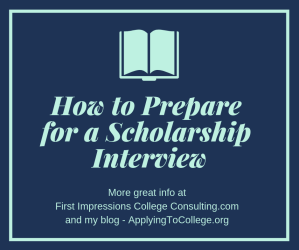
I was delighted to write this article for this week’s Redding Sentinel to help teens ace their job interviews.
Are you a teen who has a job or internship interview coming up? Do you know someone who does? For students without much – or any – interview experience, the prospect can be daunting.
The good news is that by learning basic interview techniques, teens can increase their confidence levels and make a positive impression in interviews. I’ve taught these skills to my students, and I always enjoy seeing their confidence grow. For this article, I also spoke with Redding’s Park and Recreation Director, Rob Blick, to get his insight about what he looks for when interviewing students for summer jobs.
Here are 9 Job Interview Tips for Teens
1. Know Your Strengths
The better you know yourself, the more comfortable you’ll be talking about yourself in an interview. Start by making a list of your positive qualities. (Are you determined, friendly, a leader?)
Next, list your accomplishments, awards, interests, and hobbies. Ask your parents and friends too; they can provide a perspective you might not have thought of.
“It’s good to be proud of your accomplishments, even if they’re small,” says Blick. He adds that there might be accomplishments you haven’t considered. “If you’re busy and do a lot, that’s an accomplishment,” he says.
Takeaway: Know your skills and strengths because they’ll become the foundation of your interview.
2. Find Examples to Talk About
Come up with four or five examples that illustrate the positive qualities or experiences you’d like to highlight. Strong examples include leadership, ability to work as a team member, a meaningful activity, and a time you overcame an obstacle.
It’s common to feel like it’s bragging to say “I did this” or “I helped my team” do that, but practice will help you become more comfortable talking about yourself.
Takeaway: Find your best examples and practice telling them. Now you’ve got lots to talk about in your interview!
3. Do Your Research
Go to the company’s website and jot down the key points that make you feel you’d be a good fit and excited to work there. Interviewers like applicants who are prepared and enthusiastic.
Takeaway: When interviewers see you’ve done your research, they’ll know you’re seriously interested.
4. Practice Answering Common Questions
Practicing is the best thing you can do to prepare. You should know how to answer these and other common interview questions: Why do you want to work here? Tell me about a couple of your strengths. What’s a weakness you have? What are your favorite subjects in school and why? How would your friends or teachers describe you? What are you proud of? Tell me about a time you faced an obstacle or challenge.
“There will be questions about you and your life,” says Blick. Think about what you’re proud of — maybe it’s a choice or a difficult decision.” Blick adds that he’ll often ask, “Why is your best friend friends with you?” because he likes to hear that perspective. You can find more common questions online.
Takeaway: Practice beforehand with friends, parents, stuffed animals, even your mirror. You’ll be amazed at the progress you make.
5. Prepare for Interview Day
When interview day arrives, dress appropriately (nothing too revealing, ripped, or wrinkled), arrive at least five to ten minutes early, and shut off your cell phone. Remember to be personable, friendly, and enthusiastic about wanting the job. And relax; it’s normal to be nervous. Take a deep breath and remember you’re prepared.
Takeaway: Nerves are okay on interview day — give yourself a pep talk and remember you’ve prepared.
6. Know How to Start and End An Interview
Greet your interviewer warmly and with a smile. (“Hello, Mr. Jacobs, it’s nice to meet you. Thank you for taking the time to meet with me.”)
At the end, thank the interviewer and make sure to say you enjoyed the experience. (“Thanks for taking the time to meet with me, Mr. Jacobs. I really enjoyed talking with you.”) Saying you enjoyed the experience is important; it helps leave the interviewer with a positive impression.
Takeaway: Remember to be friendly and smile, and let the interviewer know that you appreciate the time.
7. Use Good Body Language
Show the interviewer you’re interested with good body language: sit up straight; look the interviewer in the eye; don’t fidget, twirl your hair, or yawn. Have good energy.
“Good body language helps indicate you want the job,” says Blick.
Takeaway: Good body language is essential — make it work for you.
8. Ask Questions
Create several questions you can ask that aren’t easily answered by the website. It’s okay to write them down and bring them with you.
Blick says, “Ask questions about the position, your role, the work that you’ll do. The questions should indicate you know something about the organization.” He adds, “Ask about the money later in the interview process.”
Takeaway: Asking thoughtful questions shows you’re interested in the job. Don’t start by asking about money.
9. Send a Thank You Note
Email a thank you note right away. The tone should be positive and appreciative but not too casual. Make sure to correctly spell your interviewer’s name and title, and double-check if you’re not sure.
Takeaway: Send a thank you note right away.
Some Final Tips:
Blick says he likes to see teens do the calling about the job themselves rather than having their parents call for them. “We prefer to deal with the person who’s going to be our employee,” Blick says. He adds, “A follow-up phone call by the student after a couple of weeks is appropriate.”
If you know your strengths, do your research, use positive body language, and have examples to tell, you’re on your way to feeling comfortable and confident and having a successful interview.
Sharon Epstein is a Writers Guild Award-winner and two-time Emmy Award nominee, teaching students around the world how to master interview skills, write resumes, and transform their goals, dreams, and experiences into memorable college application essays. She works with students around the world. Visit my website for more info.






 Sharon Epstein is a Writers Guild Award-winner and two-time Emmy Award nominee, teaching students around the world how to master interview skills, write resumes, and transform their goals, dreams and experiences into memorable college application essays. I work with students in-person, by phone, FaceTime, Skype and email. Visit my
Sharon Epstein is a Writers Guild Award-winner and two-time Emmy Award nominee, teaching students around the world how to master interview skills, write resumes, and transform their goals, dreams and experiences into memorable college application essays. I work with students in-person, by phone, FaceTime, Skype and email. Visit my











